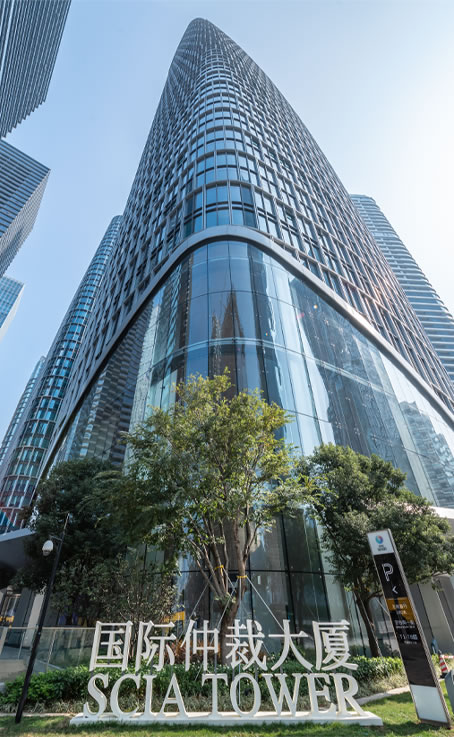

The Shenzhen Court of International Arbitration (also known as the South China International Economic and Trade Arbitration Commission, the Greater Bay Area International Arbitration Center, or the Shenzhen Arbitration Commission; hereinafter the “SCIA”) has decided to update its schedules of arbitration fees and costs to enhance party autonomy. To further optimize the arbitration fee structure, enhance fee transparency, assist domestic and international parties in reasonably arranging and effectively controlling dispute resolution costs, and foster a law-based business environment, the SCIA Council has approved revisions to the following schedules and regulation at its 13th Meeting: the Schedule of Fees and Costs of Arbitration (Annex to the SCIA Arbitration Rules), the Schedule of Arbitration Fees and Costs for Financial Loan Disputes (Annex to the SCIA Arbitration Rules for Financial Loan Disputes), and the Regulation of Fees and Costs for Special Circumstances of Arbitration Cases (hereinafter the “new schedules”). The new schedules of arbitration fees and costs apply to the cases accepted on or after July 1, 2025. The previous schedules apply to the cases accepted on or before June 30, 2025. Key updates in the new schedules include:
I. Optimizing the Structure and Reducing Arbitration Fees and Costs to Help Parties Manage Dispute Resolution Expenses Effectively
In terms of charging model, the new schedules of arbitration fees and costs implements consistent pricing for all cases — whether involving Chinese mainland disputes, international or foreign-related disputes, or disputes related to the Hong Kong SAR, Macao SAR, or Taiwan region — by charging arbitration fees according to the standards set forth in the new schedules.
In terms of charging standards, the new schedules generally lower the costs, helping both domestic and international parties better manage dispute resolution expenses. The new schedules also introduce a fee cap, waiving arbitration fees for the portion of the amount in dispute exceeding RMB 3 billion.
II. Implementing Preferential Measures and Enhancing Transparency to Facilitate Harmonious and Efficient Dispute Resolution Between the Parties
The consolidation of fee concession provisions has integrated earlier periodic fee reduction measures into the Schedule of Fees and Costs of Arbitration (Annex to the SCIA Arbitration Rules). This change enhances the stability and transparency of fee concessions and helps parties better predict costs.
The fee concession ratios have been increased appropriately based on the progress of the arbitration. For example, if a case is dismissed before the arbitral tribunal is formed, 80% of the arbitration fees and costs will be refunded. If dismissed after the tribunal’s formation but before the first hearing, 60% will be refunded; and if dismissed after the first hearing, 40% will be refunded. New fee concession terms for consolidating arbitrations have also been introduced.
The new schedules provide a clarification on the concession and offset measures for “mediation-arbitration”. Parties are encouraged to resolve disputes through various methods such as settlement, mediation, and negotiation facilitation before applying for arbitration. For cases where a settlement is reached and an application is submitted for arbitration confirmation, arbitration fees and costs will be significantly reduced based on the amount in dispute, with only 20% to 50% of the regular arbitration fees to be charged. For example, cases with the disputed amount exceeding RMB 1 billion will be charged only 20% of the regular fees, while cases with the disputed amount between RMB 100 million and RMB 1 billion will be charged only 25%. If no settlement is reached and arbitration is pursued, the mediation or facilitation fees paid to the SCIA can be fully offset against the corresponding arbitration fees and costs.
III. Support for Developing Arbitration in Relevant Industries and Regions to Help Parties Save Costs
For industry dispute cases where the parties have agreed to arbitration by the China (Shenzhen) Securities and Futures Arbitration Center, the China (Shenzhen) Intellectual Property Arbitration Center, or the SCIA Maritime Arbitration Center, arbitration fees and costs shall be reduced by 5% in accordance with the standards set forth in the Schedule I of the Schedule of Fees and Costs of Arbitration (Annex to the SCIA Arbitration Rules).
For cases where the parties have agreed to submit to the SCIA Kashi Center for arbitration, or have agreed to submit to the SCIA for arbitration with hearings held in Xinjiang Uygur Autonomous Region, arbitration fees and costs shall be reduced by 5% in accordance with the standards set forth in the Schedule I of the Schedule of Fees and Costs of Arbitration (Annex to the SCIA Arbitration Rules).
For cases where the parties agree to submit to the SCIA Jiangmen Center for arbitration and the amount in dispute does not exceed RMB 500,000, arbitration fees and costs shall be calculated by reference to the standards set forth in the Schedule of the Schedule of Fees and Costs of Arbitration (Annex to the Jiangmen Arbitration Commission Arbitration Rules).
IV. Refinement of the Hourly Rate Mechanism to Provide Diversified Arbitration Fee Options
The new schedules align with international practices while taking domestic conditions into account, broadening the scope so that arbitrator’s remuneration can now be determined by agreement in all cases rather than just foreign-related ones. At the same time, the fee mechanism for hourly rates for the arbitrator’s remuneration, as agreed upon by the parties, has been further improved to enhance the practicality of the hourly rate system. This provides both domestic and foreign parties with diversified and differentiated arbitration fee options, facilitating flexible choices for arbitration fee methods based on the specific circumstances of each case.
Please click on the Annexes to view the new schedules of arbitration fees and costs of the SCIA.
Annexes:
1.Schedule of Fees and Costs of Arbitration (Annex to the SCIA Arbitration Rules);
2.Schedule of Arbitration Fees and Costs for Financial Loan Disputes (Annex to the SCIA Arbitration Rules for Financial Loan Disputes);
3.Regulation of Fees and Costs for Special Circumstances of Arbitration Cases.

